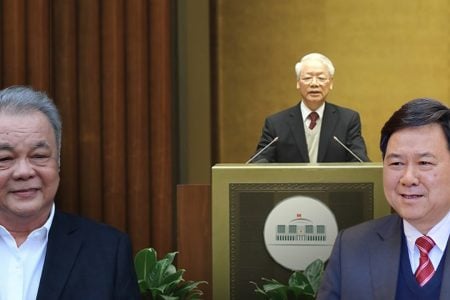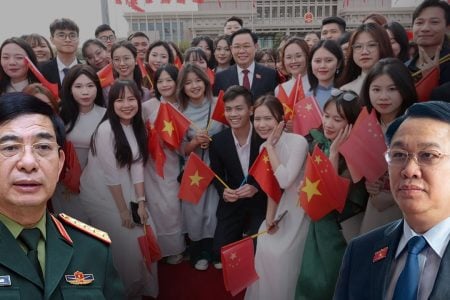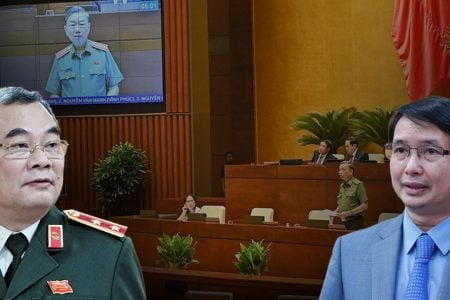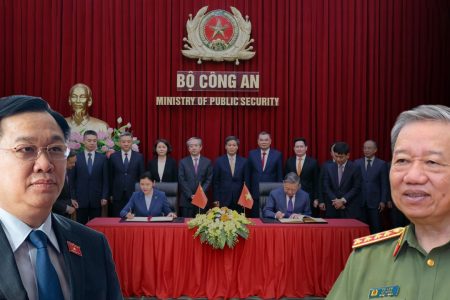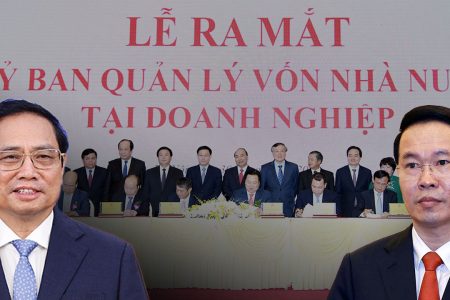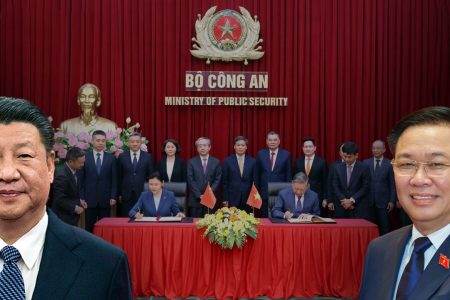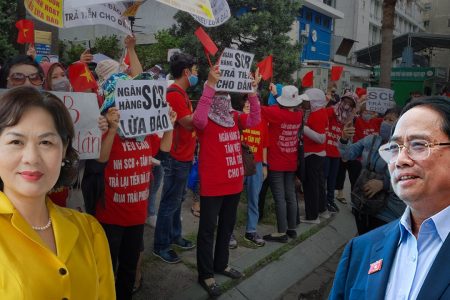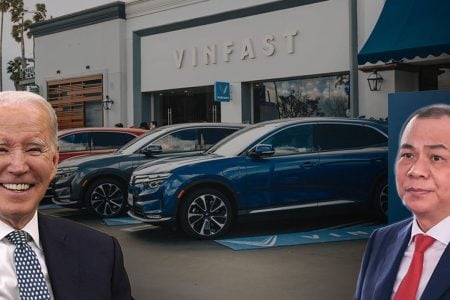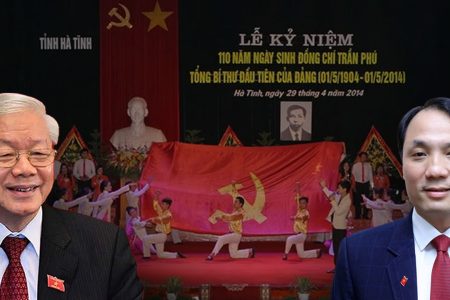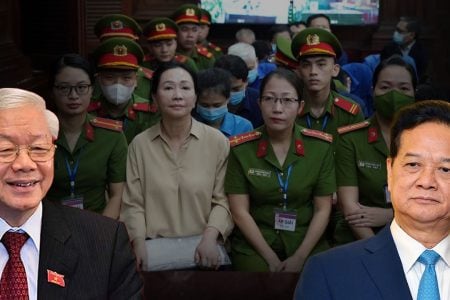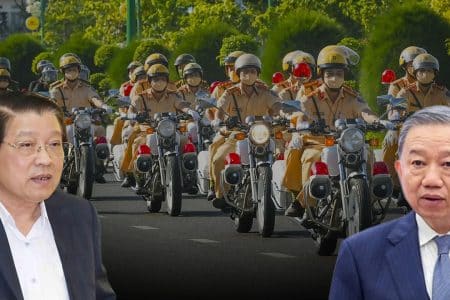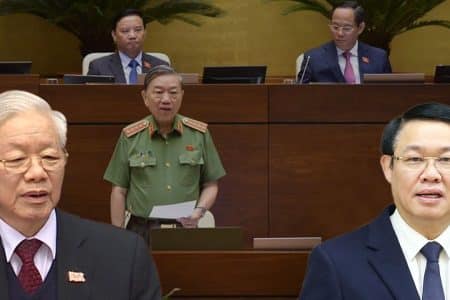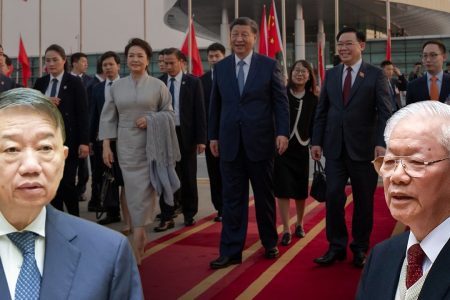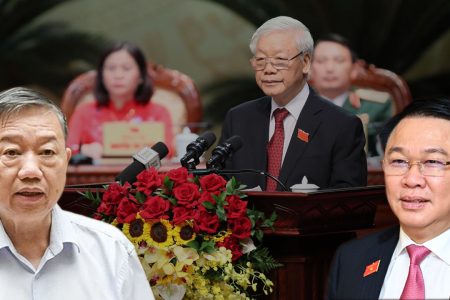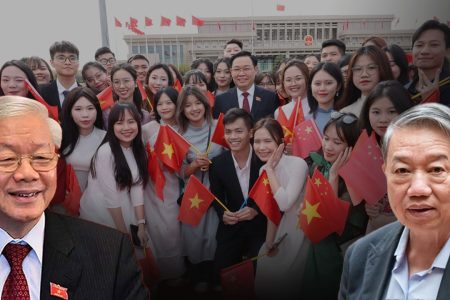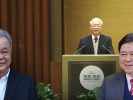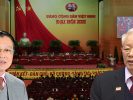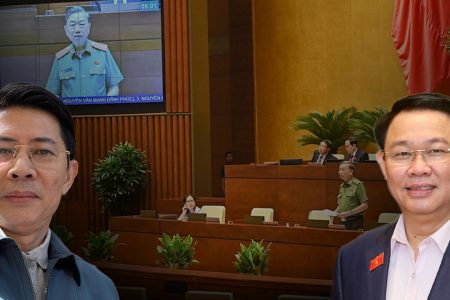Japanese anti-corruption policy experts told BBC News Vietnamese that Japan has become more active in recent years in investigating alleged bribes abroad.
The comment came in the context of Japanese media saying a Japanese company, Tenma Vietnam, twice bribed a total of JPY25 million to some Vietnamese officials.
Commenting on the incident, Finance Minister Dinh Tien Dung said that if there was a bribe, this would be a “insignificant bribery act” but would greatly affect the business and investment environment of Vietnam. The usage of the pictorial word “junk food” has caused a stir among netizens, because JPY25 million, equivalent to VND5.4 billion or around $230,000, is not a small sum.

Prime Minister Nguyen Xuan Phuc assigned the authorities to urgently inspect after the Japanese newspaper reported that Tokyo-based Tenma Plastic Company, voluntarily informed the Tokyo District Prosecutor that Tenma Viet Nam bribed twice for some customs officials and Bac Ninh tax industry to get tax reductions.
Eiji Oyamada, a professor at Doshisha University, Kyoto, told the BBC that the Tenma case had not been featured prominently in the Japanese press.
He commented that in the past, Japan did not appear to be actively prosecuting allegations of bribery abroad, even though Japan is a member of the OECD anti-bribery treaty.
“The OECD’s anti-bribery monitoring group once expressed dissatisfaction about the Japanese government’s lack of effort in implementing the agreement many years ago.”
“More recently, however, the government is aware of the importance of Japanese companies’ overseas embezzlement, especially after the US and UK have very strict anti-bribery laws abroad.”
In Japan, since June 2018, those accused of a number of crimes, including bribes, can negotiate a deal with the prosecutor for the first time.
This means they may receive a lighter punishment, or no penalty, if they disclose information used to prosecute others.
In July 2018, Mitsubishi Hitachi Power Systems, Ltd. said it had negotiated a deal in a bribe involving a factory project in Thailand. This is the first such agreement since Japan launched this new system.
Matthew Carlson, a professor at the University of Vermont, USA, told the BBC that Japan has very little practice in prosecuting bribes abroad.
“Prosecutors in Japan have traditionally focused on the major embezzlement cases they can convict.”
“In Japan since 1945, there are very few scandals involving bribery abroad.”
In fact, since Japan included the crime of overseas bribery in the the law against unfair competition in 1998, there have been only five cases of prosecuting overseas bribery by the end of 2019. But in these five cases, there have been two related to Vietnamese officials.
A related case discovered that Pacific International Consulting Company (PCI) had bribed a total of $820,000 to get the right to implement a traffic project with Japanese loans in HCM City. The Tokyo District Court imprisoned four PCI employees from a year and a half to two and a half years in 2009.
The PCI has stated that the recipient of the bribe was Mr. Huynh Ngoc Si, deputy director of the city’s Department of Transport and Public Works and the director of East-West PMU. On November 12, 2008: four former PCI leaders in Japan plead guilty in a case that prosecutors say they bribed Mr. Huynh Ngoc Si over $2.4 million.
Two weeks after four PCI officials were arrested by the Japanese side and widely reported by the Japanese press, the Vietnamese press remained silent, and the foreign press reported that a deputy minister of foreign affairs of Vietnam had requested the Japanese side to intervene so that the Japanese press stopped publishing information about the PCI during the investigation. This has caused further discontent in Japanese public opinion because in Japan with the right to freedom of the press, the Japanese Government has no right to direct or prohibit the press and the Japanese people were expecting a proper explanation and positively from Vietnam.
Five months after the PCI unveiled in Japan, Mr. Huynh Ngoc Si, who was named as a bribe taker still remained in his position. Mr. Nguyen Thanh Tai, then vice chairman of the city’s People’s Committee, said that the Japanese side needed to present evidence and then they would punish their officials.
After the Japanese side transferred 3,000 pages of documents claiming that Mr. Si received $2.4 million and the Vietnamese authorities prosecuted the case, the investigation agency finally got evidence that Mr. Si received $262,000 and on Jan 18, 2020, Mr. Sy was sentenced to life imprisonment on two allegations.

Another case was in February 2015 when a court in Tokyo tried Japan bribery consulting firm Japan Transportation Consultants Inc (JTC) for bribery in many countries, including Vietnam. The three former JTC executives were sentenced to between two and three years and JTC was fined with JPY90 million.
Professor Eiji Oyamada, a Japanese anti-corruption policy expert, said that in Japan, the public is often more interested in the scandal of using ODA aid money because it is Japanese people’s taxpayer money. Meanwhile, less attention is paid to private companies because they are aware that the damage is only private money.
On December 4, 2008, Japan announced that it stopped ODA loans to Vietnam because of pressure from Japanese public opinion after Mr. Huynh Ngoc Si received the $2.4 million bribe of PCI.

Professor Eiji Oyamada said: “At that time, the Japanese government temporarily stopped providing ODA until the Vietnamese government expressed a tough stance against corruption.”
“So I guess this time, the Vietnamese government will take stricter anti-corruption measures with both givers and recipients.”
In Tenma case, Professor Matthew Carlson said that the punishment in Japan would be moderate if the company voluntarily reported to the prosecutor in Tokyo.
“If they have admitted some allegations, I don’t think the punishment will be heavy.”
“In major embezzlement scandals, they often impose a suspended prison sentence and a fine.”
“So far, the scandal of this case seems to be relatively small and the people involved are cooperating with the investigation.”
Under the current Japanese law, Japanese citizens bribing foreign officials can be jailed for up to 5 years and fined up to JPY5 million.
Vietnamese PM Phuc assigned functional agencies to check information on Tenma case.
Professor Tran Van Tho, a member of the Vietnamese PM’s Economic Advisory Group, said it was good and welcome that the Vietnamese government, when informed of the news, decided to seriously investigate the case.
On May 26, Vietnam’s Minister of Public Security said the Vietnamese side was working with the Japanese side to investigate the case.
“Japan is where the information originated from, and I have to coordinate internationally to investigate the crime,” said General To Lam.
Tenma Vietnam’s leader declared to Japanese prosecutors that he had proposed and received approval from the company’s president to bribe Bac Ninh customs office to be exempted from the collection of value-added tax arrears for imported raw materials as well as reduced fees for non-tax-exempt revenues, Japanese media reported.

Tien Phong newspaper quoted Director of Bac Ninh Customs Department Tran Thanh To as saying “There is no story that Customs has to take several billion dongs to bypass the tax arrears of nearly 400 billion dong.”
“Japanese businesses in general and Tenma in particular have always complied with tax and customs laws,” To said.
Meanwhile, Mr. Ngo Xuan Tong, director of Tax Department of Bac Ninh province, said that Bac Ninh Police Department had worked with Tenma Vietnam’s accountant who rejected the accusation.
“At present, the general director of Tenma Company has not come to Vietnam to work, so this information cannot be clarified. Bac Ninh authorities have not received any official information from the Japanese authorities.
“However, we have worked with the Bac Ninh Province Police and the Bac Ninh Customs Department, also reported the entire incident to the Ministry of Finance,” Tong added.
In a remarkable development, the General Department of Taxation and the General Department of Customs have just decided to suspend a series of leaders, customs officers and tax officials who have been accused of taking bribes of JPY25 million from the Japanese business in Bac Ninh.
It is reported that Mr. Pham Duc Thuong – former deputy director of Tax Department of Bac Ninh Province, who signed the decision on tax examination for Tenma Vietnam Company, has been suspended from work for 15 days.
In early May, Mr. Thuong was promoted by the General Department of Taxation to the director of Tax Revenue Estimation Department (General Department of Taxation).
At the beginning of the week, Minister of Finance Dinh Tien Dung requested the establishment of an inspection team of tax and customs officials to verify the information and said that if there was a bribe, it was a “tiny bribery act” but would greatly affecting the business investment environment of Vietnam.
Thoibao.de (Translated)




